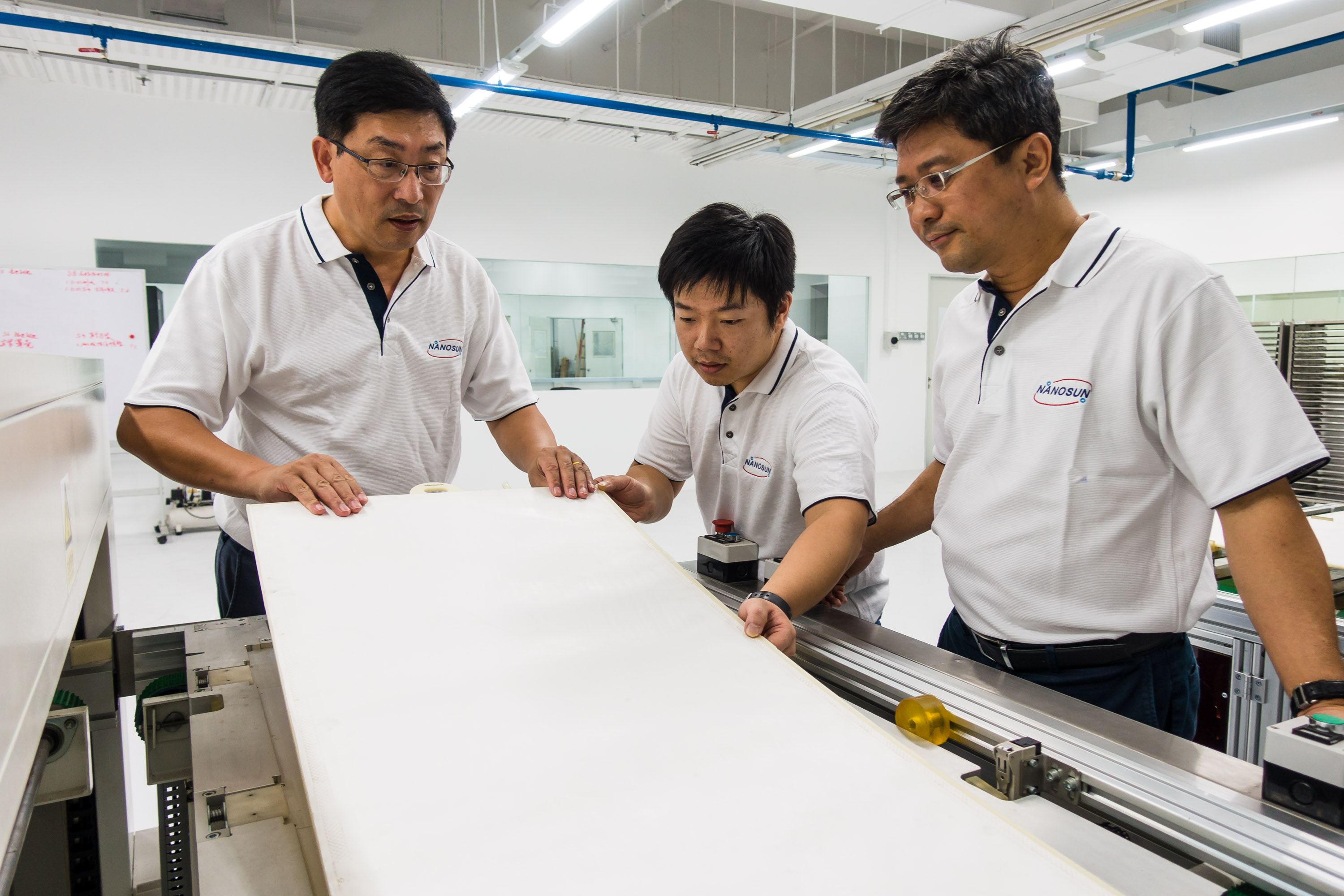
Nanyang Technological University, Singapore spin-off Nano Sun has launched a 3D-printing facility to manufacture a new type of water treatment membrane.
Unlike conventional membrane-manufacturing processes that use acids to make polymers porous that function as filters, Nano Sun 3D-prints millions of nanofibers layered on top of each other, compressed into a thin membrane. Nano Sun says that this results in a new membrane that has a faster water flow rate than conventional membranes despite having a similar pollutant rejection rate. It allows for the construction of smaller wastewater treatment plants, lowering the costs for land, infrastructure and labour.
The new membrane is also more resistant to breakage and biofouling, requiring less maintenance and brings about greater cost efficiencies.
Two of the largest semiconductor multinational companies in Singapore and a new municipal wastewater treatment plant in China will be the first customers to use the new membrane.
Nano Sun’s new 3D-printing manufacturing plant follows two-decades of work by company co-founder and NTU Associate Professor Darren Sun to develop and deploy his research innovations in materials science, water chemistry and advanced manufacturing, supported by the Singapore Economic Development Board.
Wong Ann Chai, Nano Sun’s managing director and co-founder, said finding the right market applications and validating the membranes in a wide range of industrial and municipal wastewater recovery and intensive purification for re-use, is their current focus.
“Now that our technology has been validated, we need to able to provide the most cost-effective solution for our next phase of growth. The international market demand for industrial wastewater treatment is going strong since most countries do not want to pollute their scarce surface water and underground water resources,” said Wong.
“We have clinched a record value of contracts this year, and we hope to continue building our business through providing sustainable solutions such as wastewater recycling, which will help our clients save even more in the face of an upcoming increase in water tariffs in Singapore.”
Nano Sun’s annual revenue is expected to reach S$10 million this year.
Over the next three years, Nano Sun is set to expand from a Singaporean team of 18 engineers and staff to about 80, with membrane applications to be deployed in China, Indonesia and the Philippines.
Since 2015, the NTU spin-off company has designed, commissioned and delivered more than 15 water treatment systems and plants to various governments and companies in Singapore, China, Philippines and Indonesia.
NTU Vice-President of Research, Professor Lam Khin Yong said that Nano Sun’s new facility and 3D nano-printed membrane are successful examples of how fundamental research in the laboratories can be transformed into products with real world impact.
“Sustainability research and water technologies are key research strengths at NTU and Nano Sun’s success demonstrates how disruptive innovations developed in Singapore can help propel the industry forward in the new digital economy,” said Professor Lam. “Its rapid growth from a laboratory prototype to a full-fledged production facility was made possible by the use of NTU’s innovative research in both 3D printing and water research, with help from NTU’s innovation and enterprise arm, NTUitive.”





